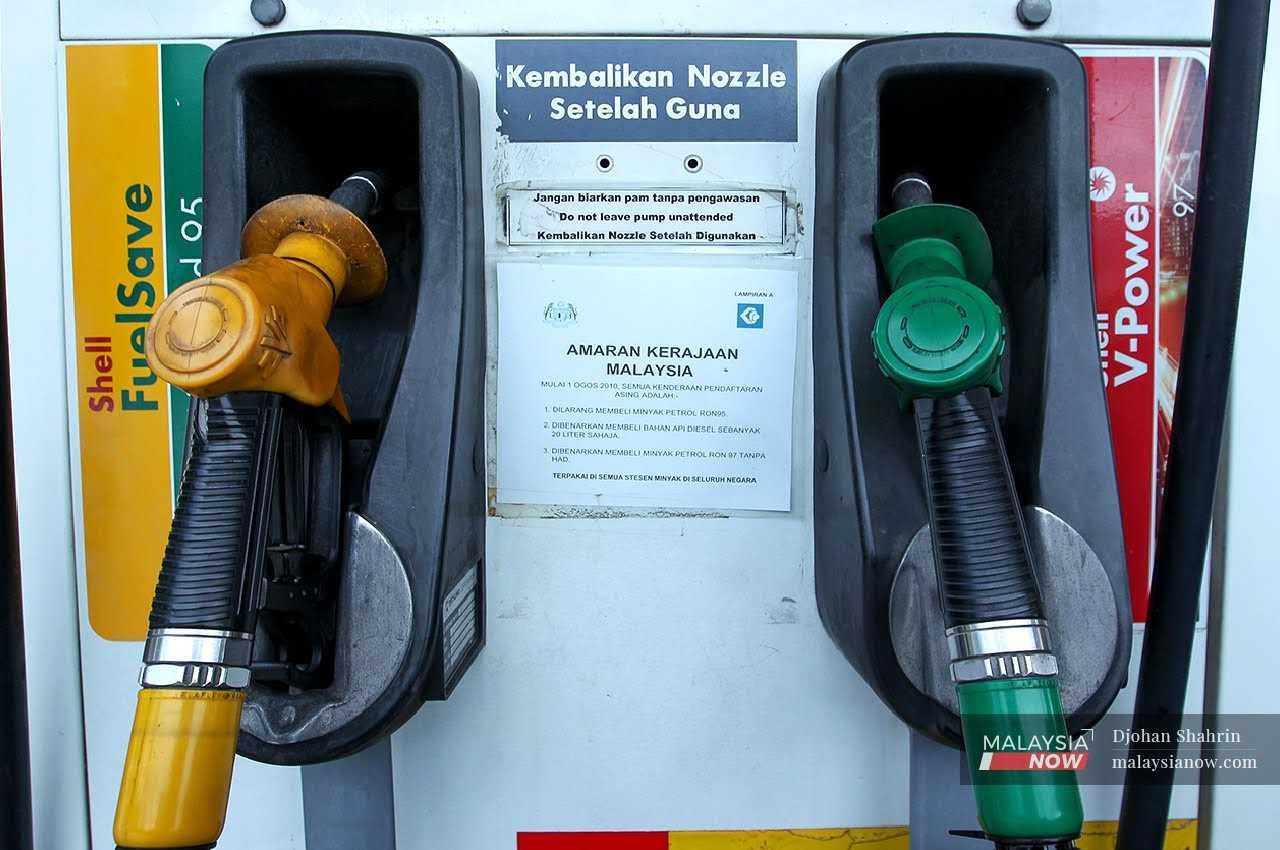Industry players, economists pan govt's plan for non-subsidised petrol stations
They say the problem lies in enforcement and the establishment of laws to prevent foreign drivers from buying petrol meant for Malaysians.
Just In
Economists and industry players have poured cold water on a suggestion by Domestic Trade and Cost of Living Minister Salahuddin Ayub for the establishment of petrol stations without subsidies in the area around Johor Bahru.
Khairul Annuar Abdul Aziz, president of the Petrol Dealers Association of Malaysia (PDAM), said such stations would only be sustainable from a business perspective if they were operated by large companies or commercial operators which supply fuel to the industry.
"This would mean buying in bulk from oil companies and having a high profit margin," he told MalaysiaNow.
Salahudin had said last week that the government was looking for suitable locations for non-subsidised petrol stations in Johor Bahru.
He said there had been many instances of subsidised petrol being bought by users from Singapore despite the fuel being meant only for Malaysians.
He cited the establishment of two non-subsidised petrol stations in Padang Besar and Wang Kelian in Perlis, which he said had saved the government RM6 million.
Last year, the government spent RM66 billion on consumer subsidies including petrol, diesel, and cooking gas subsidies.
It also proposed the implementation of targeted subsidies to prevent the leakage of subsidised materials.
Khairul said the retail stations already in operation would face competition in terms of RON 97 sales as foreign vehicles would no longer buy the higher grade fuel.
They would also have to deal with electric vehicles and ongoing uncertainties surrounding the APM formula, he said.
"PDAM believes that unsubsidised petrol should be sold at the existing stations, not new ones," he said.
"Establish mechanisms that help enforce the ban on the sale of RON 97 petrol to these customers."
Economist Adilah Zafirah Mohd Suberi meanwhile said that the focus should be on the targeted subsidy system and the more effective channelling of subsidies in the face of the rising cost of living.
"The leakage of subsidies to foreigners is not just a problem in Johor," Adilah of Iris Institute said.
"What about foreign workers and expatriates in the country? The issue is at the enforcement level. The authorities need to find a way to improve."
She also urged the government to come up with a system or mechanism to increase national income and the fair distribution of economic benefits rather than turning its focus on petrol stations.
Speaking to MalaysiaNow, she said the level of governance involving ministries, agencies, and enforcement bodies was still weak.
"There is no synergy between the ministries and agencies, not to mention the need to optimise the involvement of non-governmental and private bodies in national development."
Khairul urged the government to heed PDAM's call for a law to charge foreign drivers who fill their tanks with subsidised fuel.
"They are bold and feel no guilt because there are no laws that can be enforced against them.
"Without laws, foreign drivers, for example from Singapore, will not think twice about continuing to buy subsidised petrol."
Subscribe to our newsletter
To be updated with all the latest news and analyses daily.
